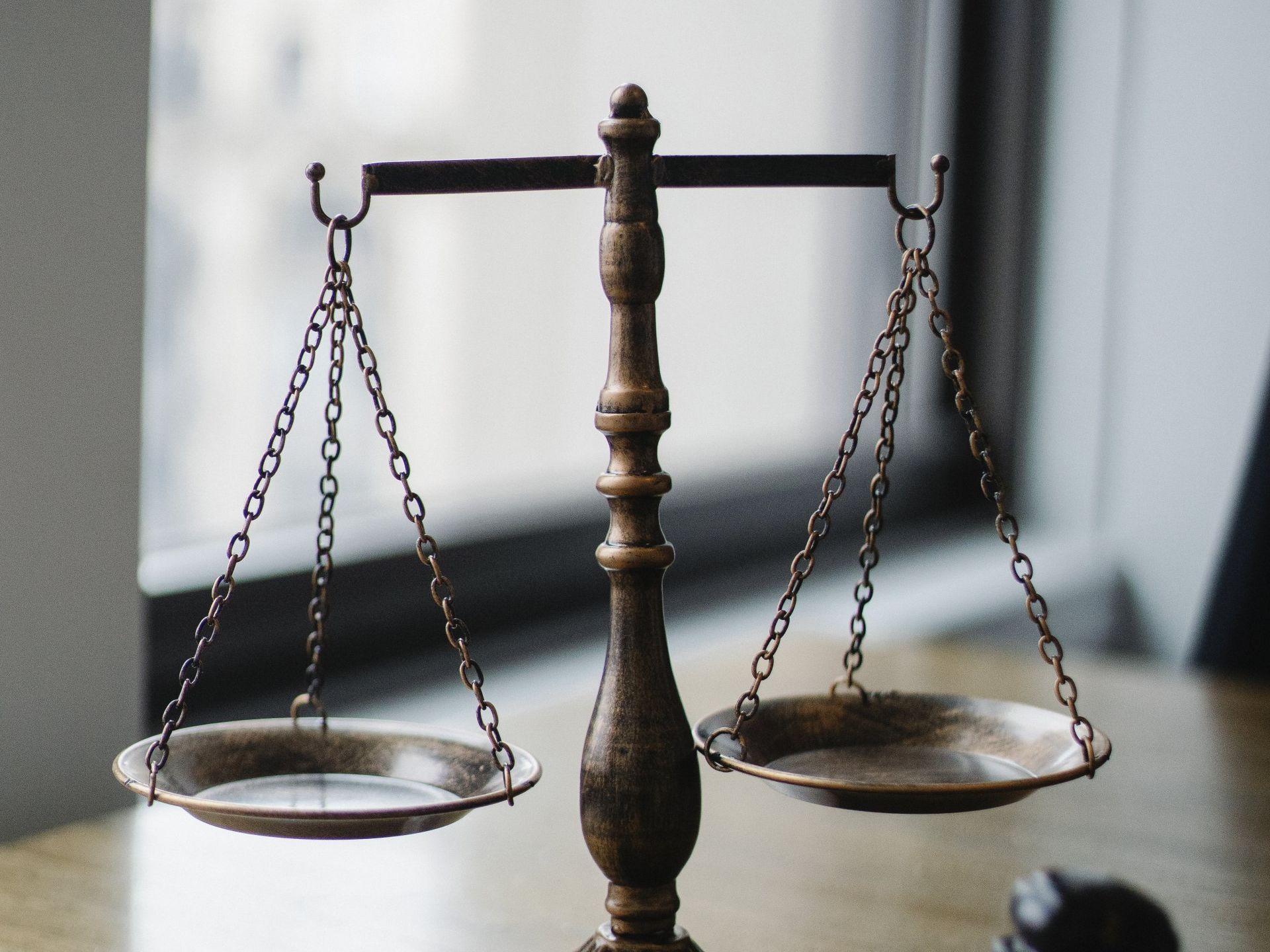-
The right to a U.S. fair and impartial trials.
The right to a fair and impartial trial is a fundamental principle of the United States legal system. It ensures that every individual, regardless of their background or circumstances, has a fair chance at receiving justice. This article explores the importance of this right and the measures in place to protect it.
To understand the significance of fair and impartial trials, we must first recognize that the American legal system is built upon the presumption of innocence. This means that individuals are presumed innocent until proven guilty, and it is the responsibility of the prosecution to present evidence that proves their guilt beyond a reasonable doubt. Fair and impartial trials are essential to ensure that this burden of proof is met.
One of the cornerstone rights in a fair trial is the right to legal representation. This ensures that individuals have access to competent attorneys who can advise and advocate for them during the trial process. The right to legal representation helps level the playing field between the prosecution and the defense and ensures that individuals are not at a disadvantage due to their socioeconomic status or lack of legal knowledge.
Another crucial aspect of fair and impartial trials is the requirement for an unbiased and impartial jury. Juries are selected from a pool of eligible citizens and are responsible for determining guilt or innocence based on the evidence presented in court. To achieve impartiality, potential jurors are questioned by the prosecution and defense to identify any biases or prejudices that could affect their ability to make an objective decision. This process, known as voir dire, helps ensure that the jury is fair and unbiased.
In addition to the right to legal representation and an impartial jury, the right to a fair trial includes other important elements. These elements include the right to confront and cross-examine witnesses, the right to present evidence, and the right to a speedy trial. These rights serve to protect the accused and ensure that they have the opportunity to mount a defense and challenge the evidence presented against them.
To safeguard the right to fair and impartial trials, the U.S. legal system has checks and balances in place. Appellate courts review trial court decisions to ensure that they were conducted in accordance with established legal standards. These courts have the power to reverse or modify a conviction if they find that errors were made that prejudiced the outcome of the trial.
While the right to a fair and impartial trial is enshrined in the U.S. Constitution, it is crucial for society as a whole to uphold and protect this right. It is the responsibility of judges, attorneys, jurors, and all participants in the legal process to ensure that trials are conducted fairly and that justice is served.
In conclusion, the right to a fair and impartial trial is a fundamental right that ensures justice and protects individuals from wrongful convictions. By upholding this right, we contribute to a just and equitable legal system that benefits us all. It is vital that we continue to prioritize and safeguard this right to maintain the integrity and fairness of our justice system.
THE LEGAL SYSTEM IN THE U.S. GUARANTEES INDIVIDUALS THE RIGHT TO A FAIR AND IMPARTIAL TRIALS
THE LEGAL SYSTEM UPHOLDS AND PROTECTS THE FUNDAMENTAL RIGHTS ENSHRINED IN THE U.S. CONSTITUTION.
DEFENDANTS HAVE THE RIGHT TO A TRIAL BY AN IMPARTIAL JURY.
THE PROCESS OF SELECTING JURORS BEGINS WITH SUMMONING A DIVERSE GROUP OF INDIVIDUALS FROM THE COMMUNITY.
DURING THE JURY SELECTION PROCESS, POTENTIAL JURORS ARE QUESTIONED BY BOTH THE PROSECUTION AND DEFENSE ATTORNEYS.
Learn MoreATTORNEYS ON BOTH SIDES HAVE THE ABILITY TO DISMISS A CERTAIN NUMBER OF POTENTIAL JURORS WITHOUT STATING A REASON.
Learn MoreATTORNEYS MAY ALSO CHALLENGE A POTENTIAL JUROR.
Learn MoreAFTER THE VOIR DIRE PROCESS AND CONSIDERATION OF CHALLENGES, THE FINAL GROUP OF JURORS IS SELECTED TO HEAR.
Learn MoreONCE SELECTED, THE JURORS CONSIDER THE EVIDENCE PRESENTED, LISTEN TO WITNESS TESTIMONIES.
Learn MoreLegal By U.S. Gov Connect For Articles And Videos.
Please Update From Articles and Videos By Date.
The Firms Of Personal Injury Law
 Learn More
Learn MoreA 5 or 4.5-star rated law firm signifies that they have consistently exceeded client expectations and delivered exceptional results. These ratings can come from various sources, including client testimonials and feedback, peer reviews, and industry recognition. It is also important to consider the number of reviews a law firm has received; a higher number typically indicates a more accurate representation of their overall performance.
The Law Firms Of A Structure
 Learn More
Learn MoreWhen it comes to legal matters, having a strong and reliable law firm by your side is essential. But have you ever wondered how law firms are structured? What roles do different professionals play in a law firm? In this article, we will explore the different components and hierarchy of a typical law firm structure.
Estate Law
 Learn More
Learn MoreWhen it comes to owning a property, whether it be a house, commercial building, or any other structure, understanding the estate law surrounding it is crucial. The estate law of a structure refers to the regulations and legalities that govern the ownership, transfer, and management of real estate.
The Best Personal Injury Law.
 Learn More
Learn MoreA 5 or 4.5-star rated law firm signifies that they have consistently exceeded client expectations and delivered exceptional results. These ratings can come from various sources, including client testimonials and feedback, peer reviews, and industry recognition. It is also important to consider the number of reviews a law firm has received; a higher number typically indicates a more accurate representation of their overall performance.
The right to a U.S. fair and impartial trials.
 Learn More
Learn MoreThe right to a fair and impartial trial is a fundamental principle of the United States legal system. It ensures that every individual, regardless of their background or circumstances, has a fair chance at receiving justice. This article explores the importance of this right and the measures in place to protect it.
Immigration Law
 Learn More
Learn MoreImmigration has always been a hot-topic issue in the United States. The country has a complex immigration law system that governs the entry and residency of individuals from other countries. Understanding this system is crucial for anyone looking to immigrate or who is interested in the topic.
U.S. Gov Connect For Articles And Videos.
Please Update From Articles and Videos By Date.
Ecosystems By U.S. Gov Connect For Articles And Videos.
 Learn More
Learn MoreEcosystems provide essential services such as regulating air and water quality, pollination, and carbon sequestration. They include forests, wetlands, oceans, and grasslands that support an array of plant and animal species. These diverse ecosystems are not only beautiful and rich in biodiversity, but they also contribute significantly to the country's economy through tourism, agriculture, and other industries.
Finance By U.S. Gov Connect For Articles And Videos.
 Learn More
Learn MoreThe finance and investments sector in the United States is a critical component of the country's economy. As one of the largest and most developed financial markets in the world, the United States offers a wide range of opportunities for individuals and businesses to grow their wealth and invest their money wisely.
Legal By U.S. Gov Connect For Articles And Videos.
 Learn More
Learn MoreThe legal system in the United States is based on the principle of federalism, which means that power is divided between the federal government and individual state governments. This division of power is outlined in the Constitution, which is the founding document of the United States. The Constitution establishes a system of checks and balances, ensuring that no one branch of government becomes too powerful.
Health By U.S. Gov Connect For Articles And Videos.
 Learn More
Learn MoreIn the modern world, technology has revolutionized many industries, and the healthcare sector is no exception. One of the most exciting developments in healthcare is the use of Artificial Intelligence (AI) in providing health services. AI has the potential to transform the way healthcare is delivered and improve patient outcomes.
Science And Technology By U.S. Gov Connect For Articles And Videos.
 Learn More
Learn MoreScience and technology are two closely intertwined fields that have revolutionized the world we live in today. They have brought about countless advancements and innovations that have improved our quality of life and made the impossible, possible. From advancements in medicine to the development of advanced electronic devices, science and technology play a vital role in shaping our society.
Entitlements By U.S. Gov Connect For Articles And Videos.
 Learn More
Learn MoreThe United States offers a variety of programs aimed at providing support and assistance to its citizens. These entitlement programs, as they are often referred to, play a crucial role in ensuring the well-being and welfare of individuals and families throughout the nation. Let's explore some of these programs and their significance.
Harnessing the Potential of Government Artificial Intelligence.
 Learn More
Learn MoreArtificial Intelligence (AI) has become one of the most transformative technologies of our time, with the potential to revolutionize industries across the board. From healthcare to finance, education to marketing, AI is already making a significant impact on how businesses operate and how society functions.
Travel Of U.S.. Gov Connect
 Learn More
Learn MoreTraveling can be an exciting and enriching experience, but it also requires careful planning and organization, especially when it comes to essential travel documents. Without the proper paperwork, you may encounter obstacles or even be denied entry to your destination country.
U.S. Gov Connect Of Legal, Health, Finances And Ecosystems By Videos.










